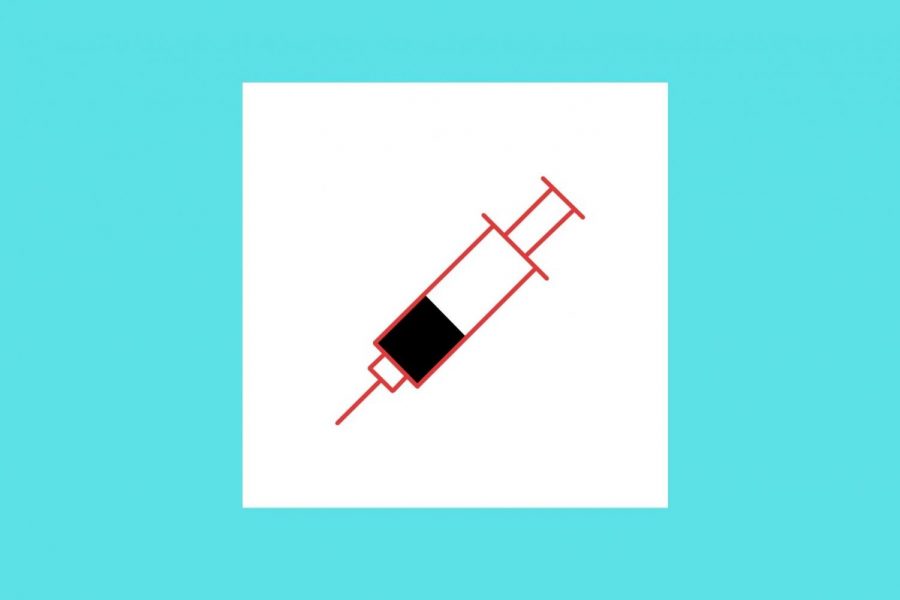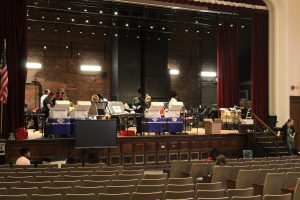OPINION: Should the unvaccinated have to pay for their choice?
Multiple pharma companies have rolled out their version of the COVID-19 vaccine, of which is free to all. Graphic by Kaelin Gaydos.
August 28, 2021
These days, people on the internet are debating over whether or not vaccines are safe to use. Many are encouraging others to get vaccinated so that they can protect themselves and their loved ones, while others claim that the new vaccinations may be harmful and advise against taking it.
Should those who refuse to get vaccinated be punished for the effect they’re having on everyone else or should we just enforce the mask mandate and social distancing to protect them?
Many states, including Kentucky, have deemed it safe enough for vaccinated individuals to enter indoor public spaces without a mask and there for a while it seemed like Kentucky was returning to a somewhat normal, pre-COVID life.
That was before the Delta variant came along.
“New data began to emerge that the Delta variant was more infectious and was leading to increased transmissibility when compared to other variants, even in vaccinated individuals,” the Center for Disease Control and Prevention (CDC) reported on August 19. National Geographic reported on a preliminary study showing that Delta can grow in human noses (whether the person is vaccinated or not). This means that the Delta variant is no joke and that we all need to get serious about taking precautions.
That being said, the COVID vaccines may not have been distributed with the intent of protecting people against any new strains, but I still believe that it must do something to protect us against Delta. Those who haven’t yet been vaccinated are contracting this new strain and spreading it like crazy. “The amount of virus produced by Delta breakthrough infections in fully vaccinated people also goes down faster than infections in unvaccinated people. This means fully vaccinated people are likely infectious for less time than unvaccinated people,” the CDC stated. Governor Andy Beshear said in a press briefing in late July that Kentucky was, “in one of the toughest places the state had ever been in, in terms of losing people.”
This increase in reported cases and deaths from COVID has had a significant impact on school regulations. Many school systems like JCPS are enforcing a mask mandate to keep students and staff safe, per CDC guidance. Some school systems, such as Magoffin County Schools, have even had to close school down just a few weeks into the school year.
The climbing rate of cases has also resulted in a reduction of permitted student activities, such as sporting events, school gatherings and dances. The cancellation of school and sporting events affects students’ ability to learn and their social life. I’m a sophomore this year and have yet to attend a high school dance. This is an experience that I would like to have but have been unable to due to the coronavirus.
I believe unvaccinated individuals are the primary cause behind this increase in COVID cases and thus the return of many COVID retractions. I understand that people who choose not to get vaccinated (but are able to) are worried about the potential long-term effects of the shot; but, they’re having a negative impact on the education and mental health of kids across Kentucky. Their choice is going above and beyond the individual to negatively impact society as a whole.
That leaves the question of whether those who can but choose not to get vaccinated should face consequences. One possible consequence or “price” the unvaccinated could face is an increase in health insurance rates.
“With highly effective coronavirus vaccines available and hospital admissions soaring, many Covid-19 patients are facing bigger bills as most insurance companies have ended waivers on out-of-pockets costs that they introduced earlier in the pandemic,” Robert Hart, a Forbes business writer, wrote. The idea is that if someone isn’t taking the provided measures to protect themselves by getting the shot, then health insurance companies will raise their prices.
The vaccine is free and many would rather get it than pay for expensive health insurance. About 57 percent of the total U.S. population has already gotten the vaccine and without receiving any long-term damage.
More expensive insurance may prompt the unvaccinated to get the vaccine. People may not want to pay the expensive check that shows up one day because they chose not to get a free shot. The more people we get vaccinated, the slower the Delta variant will spread and the safer we’ll all be.
Help stop the spread of the coronavirus by getting vaccinated, wearing your mask and properly social distancing when possible. The more vaccinated individuals, the better protected we will be. The better protected we are, the greater the chance of returning to a sense of normalcy.









